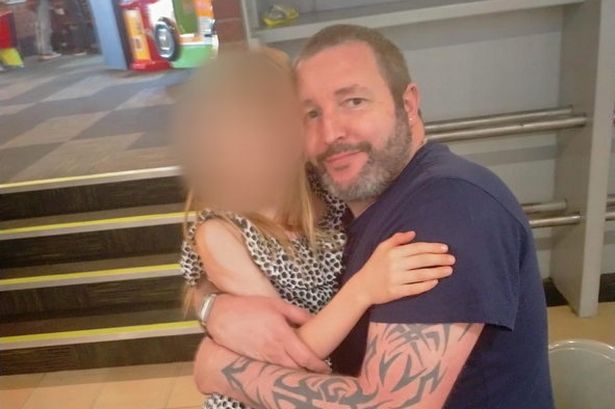Michael Free, a dedicated father from Barnsley, embarked on a year-long campaign to improve the school environment for his 11-year-old daughter, who experiences significant challenges with noise and sensory processing. His daughter’s heightened sensitivities make everyday sounds, particularly the clatter and echo of a public restroom, overwhelming and distressing. Free recognized that a simple intervention, the addition of a toilet lid, could significantly mitigate the noise level and create a more comfortable and accessible space for his daughter. He believed that this small modification would not only ease his daughter’s anxiety but also enhance her overall well-being and ability to focus on her studies. Driven by his commitment to his daughter’s needs, Free initiated communication with the school, hoping for a swift and positive response.
However, Free’s efforts were met with unexpected resistance. Despite repeated attempts to engage with the school administration, his requests for a toilet lid were consistently denied. He painstakingly outlined his daughter’s sensory difficulties and the negative impact the noisy environment had on her school experience. He provided detailed explanations of how a toilet lid could help minimize auditory distractions and create a more inclusive restroom facility. He even offered to purchase and install the lid himself, eliminating any financial burden on the school. Despite his persistent advocacy and willingness to compromise, the school remained unresponsive to his pleas, leaving Free feeling frustrated and disheartened.
The school’s refusal to accommodate his daughter’s needs baffled Free. He questioned the rationale behind denying such a simple and inexpensive modification that could significantly improve the well-being of a student with sensory challenges. He found it difficult to comprehend how the installation of a toilet lid, a seemingly minor alteration, could be perceived as problematic or disruptive to the school environment. The lack of empathy and understanding displayed by the school administration left Free wondering about their commitment to inclusivity and their willingness to cater to the diverse needs of their student population. He began to suspect that the school’s resistance stemmed from a lack of awareness regarding sensory processing issues and the profound impact they can have on a child’s ability to learn and thrive.
As the months passed and the school continued to rebuff his requests, Free’s frustration grew into a sense of profound disappointment. He felt that the school was failing to fulfill its duty of care towards his daughter and was neglecting to provide a supportive and inclusive learning environment for all students. He recognized that his daughter’s sensory sensitivities were not simply a personal preference but a genuine and documented challenge that significantly impacted her ability to function comfortably in certain environments. He believed that the school had a responsibility to address these challenges and make reasonable accommodations to ensure that all students had equal access to education and a positive school experience.
Free’s unwavering commitment to his daughter’s well-being propelled him to continue his campaign, despite the ongoing resistance from the school. He explored alternative avenues to address the issue, reaching out to local authorities and disability advocacy groups for support and guidance. He shared his story with local media outlets, hoping to raise awareness about the challenges faced by children with sensory processing difficulties and the importance of creating inclusive school environments. He also began researching legal avenues and considered filing a formal complaint against the school for failing to provide reasonable accommodations for his daughter’s disability.
This seemingly trivial issue of a toilet lid illuminated a larger systemic problem: the lack of understanding and support for students with sensory processing difficulties within the education system. Free’s experience highlights the challenges faced by many parents who advocate for their children’s needs within an often rigid and unresponsive bureaucracy. His story underscores the need for greater awareness and training for educators and administrators on sensory processing issues and the importance of creating inclusive and accessible learning environments for all students. Free’s perseverance serves as a testament to the power of parental advocacy and the vital role it plays in ensuring that children with disabilities receive the support and accommodations they need to thrive.














